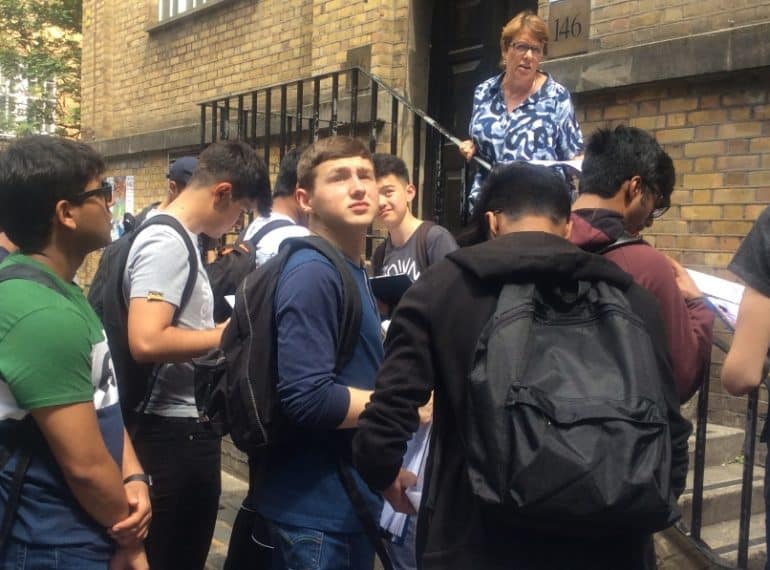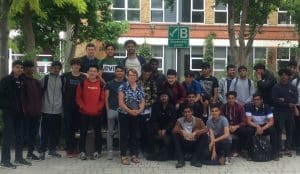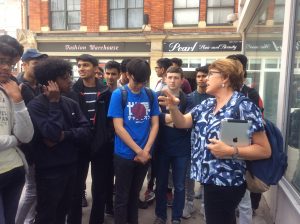Is life in Tower Hamlets getting better? Geographers head east to look for answers to this and other questions

Year 12 boys got to grips with ethnography – the systematic study of people and cultures – and used modern mobile technology to help their research during a Geography field trip to East London.
The two days were arranged to help the sixth-formers prepare for their A-level independent investigation, which must be based on an issue related to Regenerating Places or Globalisation. The investigation makes up 20% of the A-level qualification.
 Head of Geography Emily Parry said: “These two guided fieldwork days are carefully structured to assist the boys in selecting their chosen topic for investigation.”
Head of Geography Emily Parry said: “These two guided fieldwork days are carefully structured to assist the boys in selecting their chosen topic for investigation.”
The first day was spent in Stratford in Newham, where they explored how the area has changed since the 2012 Olympic Games. Day two was led by Kate Amis, Widening Participation Officer at Queen Mary University of London’s School of Geography. It began with a lecture about changes in East London, before the boys went out to conduct fieldwork around Brick Lane and Spitalfields, basing their research on investigating the question, Is life in Tower Hamlets getting better?
It was a lively day, with the boys engaging in discussions about some of Brick Lane’s most famous locations, said Miss Parry. These included “the Cereal Killer Café, a well-known site for anti-gentrification protests, the Old Truman Brewery, the Jamme Masjid Mosque and the two famous beigel shops”. As well as trialling techniques new to them, such as ethnographies, they used apps such as Skitch to help them annotate field sketches.
 The previous day in Stratford was led by Carlo Roberts from Urban Geography East London, an organisation offering Geography fieldwork programmes. Comparisons were made between the postcodes of E15 and E20 (the new postcode for East Village, which was the Athletes’ Village during the Olympics). Qualitative fieldwork techniques including environmental quality surveys, questionnaires and land-use mapping were conducted.
The previous day in Stratford was led by Carlo Roberts from Urban Geography East London, an organisation offering Geography fieldwork programmes. Comparisons were made between the postcodes of E15 and E20 (the new postcode for East Village, which was the Athletes’ Village during the Olympics). Qualitative fieldwork techniques including environmental quality surveys, questionnaires and land-use mapping were conducted.
“The boys had the opportunity to explore how this area has rapidly changed and consider who has lost out, and who has benefitted, from these changes,” said Miss Parry.
For the independent investigation, A-level students are required to collect fieldwork data and write an independent report which features independent analysis and evaluation of data, the presentation of the data findings and extended writing. The written report must be 3000–4000 words long.
